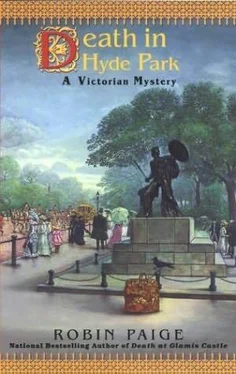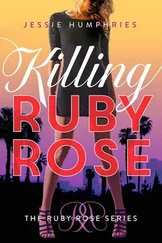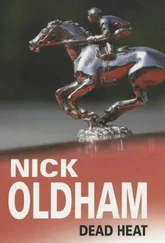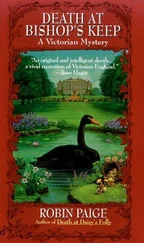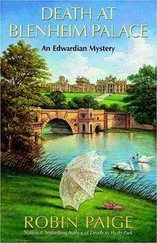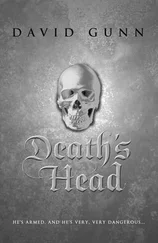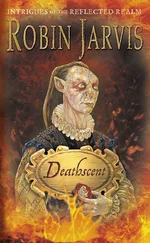Robin Paige - Death in Hyde Park
Здесь есть возможность читать онлайн «Robin Paige - Death in Hyde Park» весь текст электронной книги совершенно бесплатно (целиком полную версию без сокращений). В некоторых случаях можно слушать аудио, скачать через торрент в формате fb2 и присутствует краткое содержание. Жанр: Классический детектив, на английском языке. Описание произведения, (предисловие) а так же отзывы посетителей доступны на портале библиотеки ЛибКат.
- Название:Death in Hyde Park
- Автор:
- Жанр:
- Год:неизвестен
- ISBN:нет данных
- Рейтинг книги:5 / 5. Голосов: 1
-
Избранное:Добавить в избранное
- Отзывы:
-
Ваша оценка:
- 100
- 1
- 2
- 3
- 4
- 5
Death in Hyde Park: краткое содержание, описание и аннотация
Предлагаем к чтению аннотацию, описание, краткое содержание или предисловие (зависит от того, что написал сам автор книги «Death in Hyde Park»). Если вы не нашли необходимую информацию о книге — напишите в комментариях, мы постараемся отыскать её.
Death in Hyde Park — читать онлайн бесплатно полную книгу (весь текст) целиком
Ниже представлен текст книги, разбитый по страницам. Система сохранения места последней прочитанной страницы, позволяет с удобством читать онлайн бесплатно книгу «Death in Hyde Park», без необходимости каждый раз заново искать на чём Вы остановились. Поставьте закладку, и сможете в любой момент перейти на страницу, на которой закончили чтение.
Интервал:
Закладка:
The companion, wearing an old-fashioned bonnet, snorted wrathfully. “Wantin’ t’ blow up the King, the newspaper sez. I ’opes they gets ’ung fer it.”
Hung? Kate thought, startled, as catcalls and applause rippled through the line of waiting spectators. But surely the men were not accused of being accomplices in the Hyde Park bombing-were they? Had the police found evidence of that connection? She watched as the three men, dressed in ill-fitting dark jackets and trousers, their hands handcuffed in front of them, were roughly hauled out of the van and pushed through a door. They were being taken to holding cells, Kate knew from her reading of the newspapers, where they would be detained until they were to appear in the dock.
Kate was directed up a stair, down a hallway, and down another stair, and found a seat in the front row of the spectators’ section, between a stout man whose breath reeked of garlic and onions and an old woman whose black knitted shawl smelt of a smoky chimney. The rest of the audience was a motley assortment of men and women, some fashionably attired, others (whom Kate took to be Anarchists or sympathizers) in the threadbare garb of the working poor, a few wearing black bands on their arms. Journalists with notebooks and artists from the illustrated periodicals, sketchpads in hand, were seated along one wall. Kate looked carefully, but if Lottie were in the audience, she did not see her, or anyone else she recognized-except for Charles, of course, who was sitting close behind the table reserved for the defense. The room was crowded, it was hot for September, and she felt very much as she imagined a sardine a l’huile might feel, jammed cheek-to-jowl with its oily, smelly neighbor.
At five minutes to ten, Edward Savidge and a younger assistant made their way to the defense table, which was arranged at right angles to the bench. Savidge, robed in black and wearing an incongruous-looking white wig, laid out his papers and notes and began to shuffle hastily through them as if he were looking for something he had lost. The prosecutor, a rather youngish man whose robe and wig gave him a dignity beyond his years, strode in confidently, followed by his assistant. The table in front of him was bare.
At five minutes after ten, the pretrial activities began. It happened that not a single juror who had been summoned had failed to respond, and twelve were soon seated in the jury box and sworn in. At half-ten, the prisoners were escorted into the dock, without their handcuffs but with their ankles shackled. The usher called sternly for silence, and everyone stood while one of the London aldermen entered through the door at the back of the court, followed by the High Court judge of the City of London, stooped and scholarly, with chiseled features and penetrating blue eyes. The alderman and the judge were seated, papers were rustled, volumes of law books rearranged, pens and pencils moved about with the flourish of a magician, and the trial began with the hearing of the pleas.
“Adam Gould, how do you plead?” asked the judge.
Kate watched as the first of the prisoners stood. He was blond, well-built, and good-looking, even in the ill-fitting clothing provided for the trial. “Not guilty, Your Honor,” he said in a firm, ringing voice.
Pierre Mouffetard, the next to plead, did not present such a handsome appearance. His dark hair was raggedly cut, his face was set and hard, and his eyes blazed with radical fervor. He replied to the judge in a snarling, heavily-accented voice: “I do not recognize the authority of this court.”
Savidge, getting to his feet, said calmly, “With Your Honor’s permission, I enter a plea of not guilty on Mr. Mouffetard’s behalf.”
“Not guilty,” the judge said, and rapped his gavel. With a glare at Savidge and a dark look at the judge, Pierre stepped back to his place.
“Ivan Kopinski,” said the judge.
Ivan, his brown hair hanging in lank, dirty strings around his face, stood with his mouth closed, his eyes darting around the courtroom as if he were searching for someone. He wore, Kate thought, a look of stoic resignation, as if nothing that happened to him made a great deal of difference. After a moment, Savidge again said, “Not guilty, Your Honor,” and the three pleas were entered. Kate settled back, avoiding the sharp elbow of the woman to her right. The trial was about to begin.
The Crown prosecutor, whose name was Sims, laid out the case for the jury with an elegant if rhetorical simplicity. The three defendents-two of them employees of the Anarchist newspaper, the Clarion, and the third a well-known trade-union organizer-were charged under the Explosive Substances Act of 1883 with the possession of explosives with intent to endanger life. He would not trouble the gentlemen of the jury with a lengthy and tedious presentation of the argument that would shortly be developed; he would simply note that he expected the jury-whose careful attention to and thoughtful consideration of the arguments he very earnestly and humbly solicited-would have no difficulty at all finding the defendants guilty of a most heinous crime against the persons of their fellow men, indeed (spoken in a hushed voice and with a wide flourish of his robed arms) against the very persons of the innocent members of the jury and the spectators assembled in this courtroom. For bombs were no respecter of persons, and a bomb would as gladly kill innocent men, women, and children as anyone else. There was a stir in the courtroom as Mr. Sims sat down, and many of the better-dressed spectators were seen to look nervously over their shoulders, as if fearing that a bomb might be tossed into their very midst.
Mr. Savidge then rose and reminded the jury that no man might be found guilty of a crime committed by an associate, except upon the evidence of relevant facts demonstrating his own guilt beyond a reasonable doubt. It was their duty as jurors to carefully sift the meaningful facts from the useless arguments and theories and discard as if it were chaff every meaningless rhetorical flourish. And with a sharp glance at the prosecution, he sat down. The spectators stirred with what seemed to be a restless disappointment, as if they had expected a more eloquent statement.
The counsel for the prosecution began by summoning Inspector Ashcraft, of Special Branch, Scotland Yard, to the witness box-the man, Kate recalled, whom Charlotte Conway accused of having her and the others followed. He was thickset and round-faced, and carried himself with an assertive confidence, standing firmly in the witness box. Having been sworn, he related how the Anarchist group-the Hampstead Road cell, as he called it-had originally come to his notice through the offices of a certain “reliable source” who had identified one of the defendants, Mr. Ivan Kopinski, as potentially dangerous. Thereby alerted, he had taken special pains to read each page of the Clarion, to determine whether it was printing seditious material.
The prosecutor then introduced into evidence an article taken from the Clarion and asked the inspector to read the marked paragraph. Putting on a pair of gold reading glasses, Ashcraft read a paragraph urging all British Anarchists to support their foreign comrades “by any and all available means” and concluding, “Violence is the only thing the oppressors understand.” He raised his eyes, looked around the packed courtroom, and rendered the final sentence with an excess of gravity. “An ounce of dynamite is worth a ton of paper.”
There was another nervous stir, this one so prolonged that his lordship the judge was required to gavel it into silence. The prosecutor then inquired whether the inspector felt that the statement was seditious. Inspector Ashcraft was about to answer, but Savidge interrupted him, objecting on the grounds that the question called for an opinion.
Читать дальшеИнтервал:
Закладка:
Похожие книги на «Death in Hyde Park»
Представляем Вашему вниманию похожие книги на «Death in Hyde Park» списком для выбора. Мы отобрали схожую по названию и смыслу литературу в надежде предоставить читателям больше вариантов отыскать новые, интересные, ещё непрочитанные произведения.
Обсуждение, отзывы о книге «Death in Hyde Park» и просто собственные мнения читателей. Оставьте ваши комментарии, напишите, что Вы думаете о произведении, его смысле или главных героях. Укажите что конкретно понравилось, а что нет, и почему Вы так считаете.
